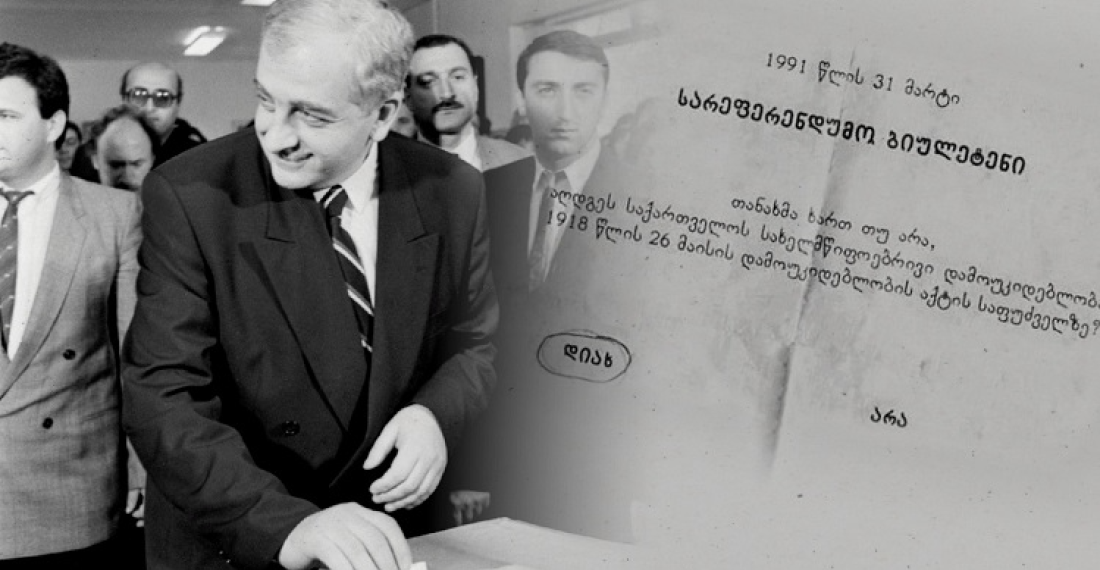On Friday (31 March) Georgia is marking the 32nd anniversary of the 1991 referendum that led to the restoration of the country's independence from the Soviet Union.
The official results of the referendum showed that some 3.3 million people voted, with 99.5% of the population voting in favour of restoring Georgia's independence.
In a brief statement marking the anniversary, Georgia Prime Minister Irakli Garibashvili said, "Thirty-two years ago today, Georgia's population declared for the whole world to hear its support for the restoration of Georgia's independence. It was based on the results of the March 31 referendum that the Act of Independence was adopted by the Supreme Council on April 9, 1991."
"This day has become exemplary in the contemporary history of Georgia in terms of civil unity as well. Held across the territory of our multiethnic country, the referendum saw our people, including our Abkhazian and Ossetian compatriots, support the idea of Georgia's independence," he added.
"The March 31 referendum will remain in history as an event laying the solid foundation for building an independent, modern European state, for progress toward the goal uniting every generation of Georgians," the statement said.
Marking the birthday of Zviad Gamsakhurdia
31 March also marks what would have been the 84th birthday of the late, first President of Georgia, Zviad Gamsakhurdia.
Prime Minister Garibashvili and Speaker of the Parliament Shalva Papuashvili on Friday morning visited the Mtatsminda Pantheon of Writers and Public Figures in Tbilisi and laid flowers at his grave.
Zviad Gamsakhurdia died on 31 December 1993.






